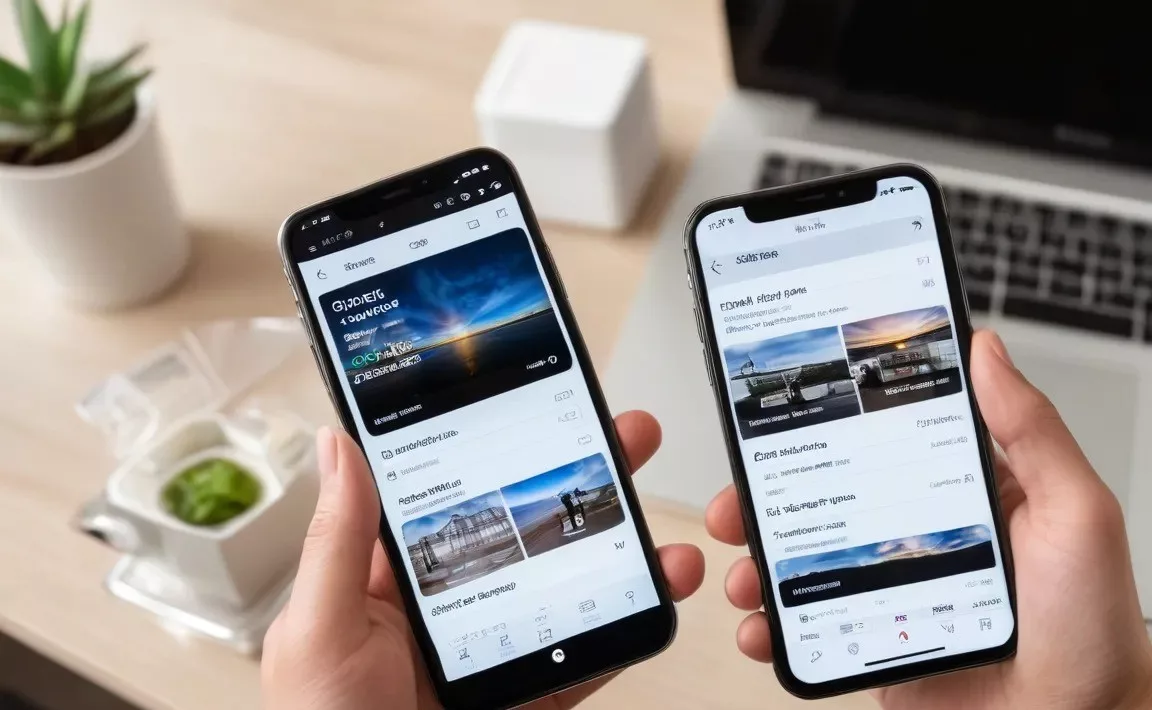Hey everyone, the age-old question: iPhone or Android? It’s a dilemma that has plagued many of us, leaving us endlessly flipping between the two, unable to make a definitive choice. Today, I’m sharing my in-depth experience and the ultimate solution that helped me conquer this tech tug-of-war. Hopefully, it’ll empower you to make the best decision for your needs!
Round 1: Design and User Experience
- iPhone:
- Pros: Sleek design, premium build quality, excellent in-hand feel. iOS is known for its simplicity, intuitive interface, and ease of use.
- Cons: Design can feel stagnant after years of minimal changes. Limited customization options for themes, ringtones, and other personalization features.
- Android:
- Pros: Wide variety of brands and designs to cater to diverse preferences. Highly customizable, allowing you to personalize themes, icons, fonts, and more.
- Cons: Build quality can vary across different Android manufacturers. Some Android skins can be less optimized, leading to occasional lag or performance issues.
Round 2: Performance and Features
- iPhone:
- Pros: Powerful A-series chips deliver blazing-fast performance and smooth gaming experiences. Excellent camera algorithms produce stunning photos and videos.
- Cons: Battery life can be a concern compared to some Android counterparts. Signal reception might not be as strong as certain Android devices. Some features require paid subscriptions.
- Android:
- Pros: Diverse hardware configurations cater to various budgets and performance needs. Some Android phones boast massive battery capacities and fast charging capabilities.
- Cons: Android’s fragmentation can lead to inconsistent experiences across different devices. App optimization might not be as consistent as iOS counterparts.
Round 3: Ecosystem and Apps
- iPhone:
- Pros: Closed iOS ecosystem offers enhanced security and generally higher-quality apps. App Store’s strict review process minimizes the risk of malware and low-quality apps.
- Cons: App prices tend to be higher compared to Android. Some features rely heavily on Apple’s own apps, like iMessage and FaceTime.
- Android:
- Pros: Open ecosystem boasts a vast selection of apps, offering more choices. Many apps are available for free on the Google Play Store.
- Cons: App quality can vary significantly, and some may pose security risks. Google Play Store’s review process is less stringent, potentially allowing some malware or low-quality apps to slip through.
Round 4: Price and Value
- iPhone:
- Pros: High resale value, holding their price better in the used market.
- Cons: Premium pricing, even entry-level models can be more expensive than many flagship Android phones.
- Android:
- Pros: Wide price range, catering to different budgets and needs. Offers excellent value for money, allowing you to get impressive features and performance at lower price points.
- Cons: Some Android phones depreciate faster than iPhones, impacting resale value.
My Ultimate Solution: Cloud Storage!
After my deep dive and comparison, I realized that both iPhone and Android have their strengths and weaknesses, making it difficult to declare a clear winner. Ultimately, I found a solution that allowed me to enjoy the best of both worlds: Cloud Storage!
The Power of Cloud Storage:
- Stress-Free Data Migration: Store your essential data (photos, videos, documents, contacts, etc.) in the cloud. Switching phones becomes a breeze – simply log in to your account and sync your data without hassle.
- Seamless Cross-Platform Compatibility: Access your cloud data from any device, whether it’s an iPhone or an Android phone, ensuring data sharing and synchronization across platforms.
- Enhanced Data Security: Even if you lose or damage your phone, your cloud data remains safe and accessible, providing peace of mind and data protection.
My Recommendation:
- If you prioritize a smooth, polished user experience and have the budget, go for an iPhone.
- If you seek greater value for money and extensive customization options, Android is your best bet.
- Regardless of your choice, embrace cloud storage services for effortless data management and backup.
